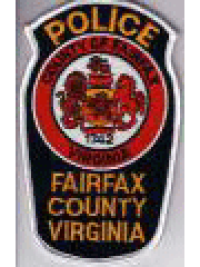Law Enforcement
Initial Application Phase Communities
| 1 | Locality: Petersburg Police Department | |
| Top CEO: Chief Travis C. Christian | ||
| Resolution: TBD |
Certified Communities
| 1 | Locality: Chesterfield County, VA | |
| Top CEO: Sheriff Karl S. Leonard | ||
| Certified: 2022 | ||
| Next Certification: by December 2025 | ||
| 2 | Locality: Town of Christiansburg, VA | |
| Top CEO: Chief M. Sisson | ||
| Certified: 2022 | ||
| Next Certification: by December 2025 | ||
| 3 | Locality: Town of Galax, VA | |
| Top CEO: Chief Rick Clark | ||
| Certified: 2023 | ||
| Next Certification: by June 2026 | ||
| 4 | Locality: Fairfax County, VA | |
| Top CEO: Chief Kevin Daive | ||
| Certified: 2020 | ||
| Next Certification: by December 2026 | ||
| 5 | Locality: City of Hampton, VA | |
| Top CEO: Chief Jimie Wideman | ||
| Certified: 2020 | ||
| Next Certification: by 2022 ext. March 2024 | ||
| 6 | Locality: Hanover County, VA | |
| Top CEO: Colonel David R. Hines, Sheriff | ||
| Certified: 2023 | ||
| Next Certification: by May 2026 | ||
| 7 | Locality: Henrico County, VA | |
| Top CEO: Chief Eric D. English | ||
| Certified: 2023 | ||
| Next Certification: by May 2026 | ||
| 8 | Locality: City of Newport News | |
| Top CEO: Chief Steve Drew | ||
| Certified: 2021 | ||
| Next Certification: by October 2024 | ||
| 9 | Locality: Town of Smithfield, VA | |
| Top CEO: Chief Alonzon Howell | ||
| Certified: 2024 | ||
| Next Certification: by October 2024 | ||
| 10 | Locality: Warren County, VA | |
| Top CEO: Sheriff Mark Butler | ||
| Certified: 2023 | ||
| Next Certification: by June 2026 | ||
| 11 | Locality: Westmoreland County, VA | |
| Top CEO: Sheriff C.O. Balderson | ||
| Certified: 2023 | ||
| Next Certification: by June 2026 | ||
| 12 | Locality: Williamsburg Police Department | |
| Top CEO: Chief Sean Dunn | ||
| Certified: 2023 | ||
| Next Certification: by December 2025 |
Civil Process and Courtroom Security Job Task Analysis Survey
Welcome to the Civil Process and Courtroom Security Job Task Analysis Survey Webpage
The Department of Criminal Justice Services (DCJS) is conducting a study to help us validate current basic training and ensure that it prepares new deputies to perform the tasks that await them on the job. As part of this effort, we are conducting four job task analysis (JTA) surveys of deputies that are 1) Civil Process officers with 5 or fewer years in the assignment, 2) Supervisors of Civil Process officers, 3) Courtroom Security officers with 5 or fewer years in the assignment, or 4) Supervisors of Courtroom Security officers.
If your agency was contacted by DCJS to ask you to participate in one of these surveys, you are in the right place. Here’s what you need to do:
Identify which survey you were assigned to take. You should have been provided with a Username and Password necessary to log in to the survey. The last part of your password indicates which survey you have been assigned to take:
- CP<5 (Civil Process Officer with less than 5 years in the assignment)
- CPsupv (Supervises Civil Process Officers)
- CS<5 (Courtroom Security Officer with less than 5 years in the assignment)
- CSsupv (Supervises Courtroom Security Officers)
When you are ready to begin the survey, click on your assigned survey’s link, then enter the Username and Password provided to you.
CP<5 survey https://surveys.dcjs.virginia.gov/surveys/CPO--5-years
CPsupv survey https://surveys.dcjs.virginia.gov/surveys/CPO-supervisor
CS<5 survey https://surveys.dcjs.virginia.gov/surveys/CSO--5-years
CSsupv survey https://surveys.dcjs.virginia.gov/surveys/CSO-supervisor
Please complete the survey before March 22, 2023.
If you have any questions about or need assistance with the survey, please contact Lois Kinch, Training Standards Coordinator, at lois.kinch@dcjs.virginia.gov or 804-229-7231.
Local Law Enforcement Block ("LOLE") Grant Program
Introduction
The Virginia Department of Criminal Justice Services (“DCJS”) is pleased to announce the availability of funds through the Local Law Enforcement Block (“LOLE”) Grant Program. The Byrne Justice Assistance Grant Program (“JAG”) makes federal funds available to localities to help support their efforts to support public safety or crime prevention efforts. DCJS has been designated to administer a portion of the JAG funds reserved for Virginia and to make those funds available to local units of government. DCJS has designated this program the Local Law Enforcement Block, LOLE, Grant Program.
Eligibility for LOLE Funds
The LOLE grant program is a formula based grant opportunity. Eligible localities have reported violent crime data at least three (3) years of the past ten (10) calendar years, to the Federal Bureau of Investigations Uniform Crime Report (URC) Part 1. If a locality has not reported at least three (3) years of UCR Part 1 violent crime data in the past ten calendar years, they are ineligible to receive an award. Localities wishing to accept the LOLE funds allocated for their jurisdiction will need to complete an “eligibility application” on DJCS’s Online Grant Management System (“OGMS”) to ensure eligibility.
Funding Focused Areas
- Law Enforcement to include- hiring, overtime, and equipment
- Prosecution and Courts
- Prevention and Education efforts
- Corrections and Community Corrections
- Drug Treatment
- Planning, Education and Technology Improvement
Prohibition on Use of Funds
Funds through this grant program are not to be used to purchase, lease, rent, or acquire tanks or armored vehicles, fixed-wing aircraft, limousines, real estate, yachts, consultants, or any vehicle not used primarily for law enforcement. In addition, federal funds cannot be used to supplant State or local funds, but instead to increase the amount of funds that would be available otherwise from State and local sources.
Match Requirement
There is no match requirement for this program.
Technical Assistance
Please contact the following DCJS staff for questions regarding your Local Law Enforcement Block, “LOLE”, Grant program:
- Nicole Phelps: email nicole.phelps@dcjs.virginia.
gov or telephone 804.786.1577 or - Tracy Matthews: email tracy.matthews@dcjs.virginai.
gov or telephone 804.371.0635
Substantial Risk Order Program
Virginia’s Substantial Risk Order Laws
The Virginia Substantial Risk Order was initially introduced during the 2015 session of the Virginia General Assembly. The proposed legislation was updated several times since its initial introduction. These updates were influenced by lessons learned from other states, as well as input from a variety of stakeholders, including law enforcement, current and former commonwealth’s attorneys, the Office of the Executive Secretary, legislative legal staff, researchers, public health experts and treatment providers. The current Substantial Risk Order Law was introduced in the 2020 session of the Virginia General Assembly, where it was passed and signed into law. The law became effective on July 1, 2020.
The Substantial Risk Order is a civil court order that allows commonwealth’s attorneys and law enforcement to petition the court to temporarily prevent the purchase, possession, or acquisition of firearms from an individual who is deemed a substantial risk of harming themselves or others in the near future. The order requires the respondent to voluntarily relinquish firearms in their possession to law enforcement.
Virginia has two substantial risk order laws:
§ 19.2-152.13. Emergency substantial risk order.
§ 19.2-152.14. Substantial risk order.
Training
Substantial Risk Orders - Virginia’s “Red Flag” Laws Webinar
Contact Information
Dennis S. Proffitt, Substantial Risk Order Training Coordinator
804-292-4675
dennis.proffitt@dcjs.virginia.gov
Law Enforcement Decertification
DECERTIFICATION AND STANDARDS OF CONDUCT UPDATES
This material will be updated periodically!
Decertifications
The Department of Criminal Justice Services has been developing processes to assist Virginia Law-Enforcement Agencies submit the necessary notification information and documentation to ensure that any suitable decertification concerns are addressed effectively, appropriately, and fairly in accordance with the recently enacted updates to Virginia Code 15.2-1707.
Code of Virginia: 15.2-1707. Decertification of law-enforcement officers. https://law.lis.virginia.gov/vacode/title15.2/chapter17/section15.2-1707/
Please direct any decertification questions to: Jonathan (Jon) D. Banberger, LE Decertification Coordinator jonathan.banberger@dcjs.virginia.gov or LEJDecert@dcjs.virginia.gov
Please direct any FOIA requests to: FOIA@dcjs.virginia.gov
- Additional information on DCJS’s FOIA policy: https://www.dcjs.virginia.gov/about-dcjs/foia-requests
DCJS has developed a Newly Revised “Request for Decertification” (Form DC-1, Version 2.0_3.14-2024) questionnaire to assist agencies in providing the necessary notification and information to determine the suitability of a submission for decertification. Please discard the previous version of the form, if in use.
Please scan and email the completed, signed, questionnaire to: LEJDecert@dcjs.virginia.gov
2024 Appeal Hearing Dates
Pursuant to Virginia Code 15.2-1708 (https://law.lis.virginia.gov/vacode/title15.2/chapter17/section15.2-1708/), Appeal Hearing Dates have been tentatively prescheduled to allow the Executive Committee of the Criminal Justice Service’s Board to be available to conduct Decertification Appeal hearings. Upcoming dates for the 2024 Calendar Year are as follows: (Posted 11/13/2023, updated 02/07/2024)
2024 DATES:
January 18-19, 2024Concluded- March 28-29, 2024
- May
23-24, 2024 Dates changed to: May 16 – 17, 2024 - July 25-26, 2024
- September 26-27, 2024
- November 21-22, 2024
Please note that the specified dates may be subject to change based upon the Quorum availability of the Executive Committee of the Criminal Justice Services Board to conduct these hearings. Changes will be updated on this webpage, Virginia Regulatory TownHall and via direct notifications to the appellants and hearing participants, as soon as determined.
Please find a sample “Flow Chart’ describing the Law Enforcement Decertification process as employed by DCJS Staff, in accordance with the notated Virginia Code Sections. (“DCJS Process for Officer Decertification” Flow CHART)
Statewide Standards of Conduct
March 2024…
The Statewide Standards of Conduct for Law Enforcement and Jail Officers (6 VAC 20-20) has been approved and is actionable, effective MARCH 14, 2024. The current version has been approved as an emergency regulatory action and will be submitted into the regulatory process for further evaluation and permanent adoption at a future date. The current language is available via the Virginia Regulatory Town Hall Website (https://townhall.virginia.gov/l/ViewXML.cfm?textid=16995) and attached for review and use, as relates to associated potential eligible violations of the Decertification Code, Virginia 15.2-1707, subsection B, (iv and v). The “Request for Decertification” (Form DC-1, Version 2.0_3.14-2024) form has been updated to include the useability of the noted code sections.
Please note that the Standards of Conduct and Serious Misconduct content is enacted for use as of March 14, 2024. Instances or occurrences that may reflect such conduct, which occurred prior to the enactment date, cannot be considered for eligibility of decertifying an individual, however the previously active considerations, under the decertification, may be considered, if the reporting agency feels the involved circumstances meet the code language and criteria.
On February 29, March 5, and March 6, 2024, Mr. Harvey Powers, Law Enforcement Division Director, DCJS, held virtual Standards of Conduct Briefings, attended by many Law Enforcement Professions, throughout Virginia, providing and update on Decertification as well as the expected impact of the Standards of Conduct and Serious Misconduct in their implementation as code viable consideration. The meeting, held on March 6, 2024, was recorded and is available for your review via this link: (SOC Virtual Meeting 03-06-2024)
Decertification Code Sections:
15.2-1707: https://law.lis.virginia.gov/vacode/title15.2/chapter17/section15.2-1707/
15.2-1708: https://law.lis.virginia.gov/vacode/title15.2/chapter17/section15.2-1708/
Request for Decertification Form:
“Request for Decertification” (Form DC-1, Version 2.0_3.14-2024)
"SOC Language" (3-03-2024 SOC)
Thank you for your continued patience and support.
Law Enforcement Division
Virginia Department of Criminal justice Services
Proposed Updates to the Compulsory Minimum Training Standards and Performance Outcomes for Law Enforcement Officers
Project Highlights | PowerPoint Presentation | Recorded Presentation | Committee on Training Approved Training Standards | Committee on Training Meeting Information
AGENDA
All meetings are currently scheduled to take place in the East Reading room of the Patrick Henry Building
COMMITTEE ON TRAINING MEETING INFORMATION
|
October 29, 2021 from 10 a.m. - 12 p.m. Categories to be covered:
|
November 19, 2021 from 10 a.m. - 12 p.m. Categories to be covered:
|
|
November 30, 2021 from 10 a.m. - 12 p.m. Categories to be covered:
|
New Laws Update

We want to thank the Commonwealth's Attorneys' Services Council for providing the 2020 New Laws Update.
2023 New Laws Update
- 2023 Legislative Update for Law Enforcement (PowerPoint® PPTX format)
- 2023 Legislative Update for Law Enforcement (PDF) - Master List
- 2022 - 2023 Virginia Law Enforcement Appellate Update (PowerPoint® PPTX format)
- 2022 - 2023 Virginia Law Enforcement Appellate Update (PDF) - Master List
2022 New Laws Update
- 2022 Legislative Update for Law Enforcement (PowerPoint® PPTX format)
- 2022 Legislative Update for Law Enforcement (PDF) - Master List
- 2021 - 2022 Virginia Law Enforcement Appellate Update (PowerPoint® PPTX format)
- 2021 - 2022 Virginia Law Enforcement Appellate Update (PDF) - Master List
2021 New Laws Update
- 2021 Legislative Update for Law Enforcement (PDF) (also available in PowerPoint® PPTX format)
- 2021 Legislative Update for Law Enforcement - Master List (PDF)
- 2021 Appellate Update for Law Enforcement (PDF) (also available in PowerPoint® PPTX format)
- 2021 Appellate Update for Law Enforcement Master List (PDF)
2020 New Laws Update
- 2020 Legislative Update Special Session for Law Enforcement (PDF) (also available in PowerPoint® PPTX format)
- 2020 Legislative Update for Law Enforcement (PDF) (also available in PowerPoint® PPTX format)
- 2020 Legislative Update for Law Enforcement - Master List (PDF)
- 2020 Appellate Update for Law Enforcement (PDF) (also available in PowerPoint® PPTX format)
- 2020 Appellate Update for Law Enforcement Master List (PDF)
2019 New Laws Update
- 2019 Legislative Update for Law Enforcement (PDF) (also available in PowerPoint® PPTX format)
- 2019 Legislative Update for Law Enforcement - Master List (PDF)
- 2019 Appellate Update for Law Enforcement (PDF) (also available in PowerPoint® PPTX format)
- 2019 Appellate Update for Law Enforcement Master List (PDF)
- 2019 Legislative Update-Supplement-Omnibus Fingerprinting Bill (PDF)
2018 New Laws Update
- 2018 Legislative Update for Law Enforcement (PDF) (also available in PowerPoint® PPTX format)
- 2018 Legislative Update for Law Enforcement - Master List
- 2018 Appellate Update for Law Enforcement (PDF) (also available in PowerPoint® PPTX format)
- 2018 Appellate Update for Law Enforcement Master List (PDF)
2017 New Laws Update
- 2017 Legislative Update for Law Enforcement (PDF) (also available in PowerPoint® PPTX format)
- 2017 Legislative Update for Law Enforcement - Master List
- 2017 Appellate Update for Law Enforcement (PDF) (also available in PowerPoint® PPTX format)
- 2017 Appellate Update for Law Enforcement Master List (PDF)
T-REX
Hiring, training, certification, promotions, name changes, job changes, retirement and more - T-REX keeps track of it all. The T-REX Online System is the automated records system utilized by the Department of Criminal Justice Services (DCJS) to track criminal justice personnel employed in the Commonwealth of Virginia.
Agencies begin the process locally by entering new hires and are able to periodically update the records of their employees (e.g. name changes, change in functions, ranks, and separations from their agencies). Simple forms are completed to accomplish this. A reports feature allows agencies to review their Employees Lists periodically to check for accuracy of any information entered regarding their employees. The information entered into T-REX locally is also imported to the state database so that statewide information is available as well as providing a back-up to local agencies.
Training information is imported to T-REX to monitor compliance with training requirements by criminal justice personnel. This enables the Department to inform agencies of criminal justice personnel who might become delinquent in the completion of their training and to ensure that criminal justice personnel are in compliance with their mandatory training requirements as required by the Code of Virginia.
The T-REX Online System is secure to prevent unauthorized data entry. If your agency does not currently have access to T-REX, simply complete the "Confidential Information Agreement" found on page 3 of the T-REX User Guide and follow the instructions for submitting it. You may download the guide here.
Installing T-REX
Click here to install T-REX. T-REX should ask you if you want to install shortcut icons on the desktop and/or start menu after running it the first or second time. Please accept the shortcut creation to make it easier to start T-REX the next time. If you need any assistance please see the contact information below.
Contact Information
Lisa Thornton
(phone) 804.786.4154
(fax) 804.786.0410
email Lisa
Amy Sink
(phone) 804.786.7898
(fax) 804.786.0410
email Amy













